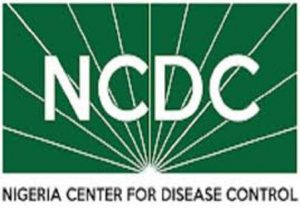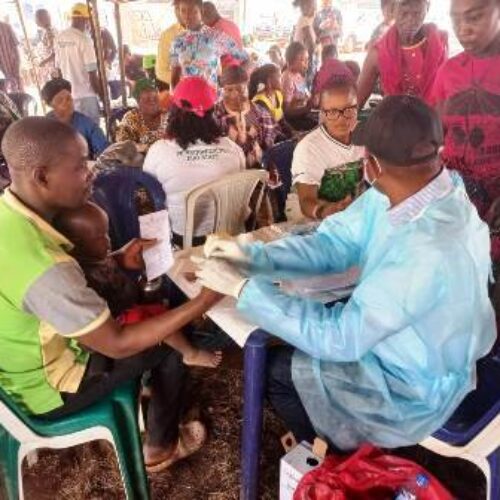NCDC issues Public Health Advisory on Ebola
Following the recent confirmation of an outbreak of Ebola in Congo, the Nigeria Centre for Disease Control (NCDC) has issued a public health advisory to assist Nigerians in preventing the dreaded disease.
The Centre also announced that its Emergency Operations Centre has been activated and is on Alert Mode.
“We are closely monitoring the situation in Congo and strengthening our preparedness level in Nigeria,” the centre further assured.
The Public Health Advisory reads:
“On the 8th of May 2018, the Government of the Democratic Republic of the Congo (DRC) confirmed an outbreak of Ebola virus disease (EVD) in Bikoro, Congo. Between the 4th of April and 5th of May 2018, 19 suspected Viral Haemorrhagic Fever (VHF) cases and 16 deaths had been reported, according to a report by the World Health Organisation. Of the five samples tested, two were positive to Ebola virus disease (EVD).
“The World Health Organisation has classified Nigeria and other countries in the African region to be at moderate risk of spread. To prevent an outbreak of Ebola in Nigeria, the Nigeria Centre for Disease Control presents this public health advisory to the general public.
“Ebola Virus Disease is a rare disease that can lead to death mostly affecting human and non-human primates (monkeys, gorillas, and chimpanzees). It is caused by an infection with one of five known Ebola virus species, four of which can cause disease in human.
“The virus can be transmitted via direct contact with bodily fluids of a person who is sick with or has died from EVD. The virus can get in through broken skin or mucous membranes in the eyes, nose, or mouth. The virus can also be spread through contact with objects contaminated by infected persons as well as direct contact with the blood, body fluids and tissues of infected fruit bats or primates.
“When infected, a person with Ebola may present with symptoms such as sudden high fever, severe headache, muscle pain, weakness, fatigue, diarrhoea, vomiting and abdominal pain. A distinct symptom of Ebola and other VHFs is unexplained bleeding from body openings. The symptoms may appear 2 to 21 days after exposure to an infection.
“The Nigeria Centre for Disease Control is currently coordinating a national working group that is assessing and managing the risk to Nigeria. We are in close communication with our partners including the World Health Organisation, who are in Congo to monitor and respond to the situation. The Port Health services unit has been placed on alert and have heightened screening measures at ports of entries. Letters of alert have also been sent to all States to enhance surveillance activities.
“To prevent the spread of Ebola, members of the public are advised to adhere to the following precautions:
- Wash your hands frequently using soap and water – use hand sanitizers when soap and water is not readily available
- Avoid direct handling of dead wild animals
- Avoid physical contact with anyone who has possible symptoms of an infection with an unknown diagnosis
- Make sure fruit and vegetables are properly washed and peeled before you eat them
“Health care workers are advised to ensure universal care precautions at all times. This includes the use of personal protective equipment when handling patients always. In addition, patients who are suspected to have Ebola should be immediately isolated from other patients.
“NCDC remains fully committed and capable of protecting the health of all Nigerians from infectious disease outbreaks.”
For advice, enquiries and notifications:
NCDC TOLL-FREE LINE: 0800 9700 0010
SMS: 08099555577
WHATSAPP: 07087110839







0 Comments
No Comments Yet!
You can be first to comment this post!